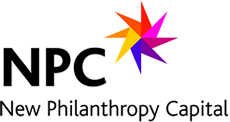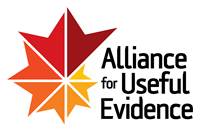Guest Blog: Will there ever be a common social reporting standard?
Will there ever be a common social reporting standard?
by Harry Hoare, Social Finance UK
Before the SIAA conference in Berlin back in November 2012 I would have shrugged, shaken my head and answered that I just couldn’t see it happening. How can impact be judged? And why would you want to do so?
My initial scepticism reflects the 19th century’s reaction to the proposal of common accounting standards and yet those learned men who spoke so eloquently against the idea of comparing a ship building company against a textiles manufacturer sound amusingly off the mark.
Following the keynote address from Kate Ruff (Charity Intelligence Canada) I am convinced that a common social reporting standard may be possible and I may even have a part to play in making that happen.
As an Analyst at Social Finance I’ve interviewed recovering drug addicts at a methadone clinic, helped pitch social investment opportunities to banks and worked with charities to think through how they might use social investment to scale their impact. Doing these varied activities has required a combination of financial analysis, social research and an attempt to understand the nature of the underlying social problem. (Note: I don’t pretend to have all of these skills and I’m thankful to an understanding and talented team of colleagues).
Over time I have started to appreciate the demands of investors who want to maximise the impact of their investment and the constraints placed on charities who want to scale their impact and demonstrate their effectiveness. There can be a tension between helping as many people as possible and the requirement to measure effectively. Some charities, rightly, prioritise getting the job done over making sure everyone knows about it. Of course attracting donors and investors requires standing behind a good record but there is a balance to be struck. I think the debate about a report standard needs to be set in this context – one in which we recognise the costs of imposing burdensome reporting requirements as we don’t want to snuff out good work.
Kate’s talk identified slightly more practical barriers to a common reporting standard and how they can be overcome with the help of social impact analysts:
- Achieving both flexibility and comparability. A common standard needs to allow for comparisons but cannot be overly restrictive to adopt.
- Uncertainty about which disclosures matter – about what needs to be reported and what doesn’t. Analysts can help identify what those with the money want to see evidenced and draw together these strands whilst understanding the nature of the problem and those metrics that represent genuine improvement.
- Avoiding isolated, private information reports. Social impact analysts can collaborate and share reports so that a data-rich environment is created in which the most useful ways of presenting information gain primacy.
The idea that a standard can balance flexibility and comparability shows that the doubters might need to think again. I am sure that promoting adoption of – and maintaining adherence to – an emerging shared understanding of impact reporting is a job for which social impact analysts are well placed.
Harry Hoare is an Analyst at Social Finance UK.
You can watch Kate Ruff’s key note presentation from our 2012 conference here.













[...] This post originally appeared here. [...]